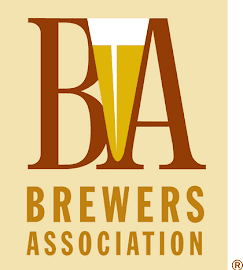Forget free speech. Forget public health. Until 1995, it was a crime in the United States for a brewery to inform a consumer as to how much alcohol was in her beer.
It was not until Rubin v. Coors, a Supreme Court decision in 1995, that breweries were legally permitted to list alcohol levels on their bottles, six-packs, cases, etc. The court decided it as a 1st Amendment free speech issue.
Up to that time, the Bureau of Alcohol, Tobacco, and Firearms (BATF) had forbidden such information. The Rubin of the case was Robert Rubin, (Bill) Clinton's Secretary of the Treasury; Coors was, naturally, Coors Brewing. (There is some apocryphal evidence that the Big Brewers may have encouraged the formation of the no-alcohol rules as protection against foreign competition and as cover against neo-Prohibitionism.)
Concurrent with the creation of the Department of Homeland Security, the BATF was cleft in two:
* remaining with the Department of the Treasury was the TTB - Alcohol and Tobacco Tax and Trade Bureau, which collects excise taxes and regulates labeling
* moving to the Department of Justice was the BATFE (gaining an E) - Bureau of Alcohol, Tobacco, Firearms, and Explosives, a law enforcement and anti-terrorism agency.
Related to the Rubin v. Coors decision are 21st Amendment issues.
That amendment repealed Prohibition - the 18th Amendment. But it also gave to the states the right to control the importation of alcohol within each state's own borders. (North Carolina, for example requires that any beer in excess of 5.9 % abv must have the alcohol percentage listed on the bottle.) This is sometimes read as a partial trumping of the Commerce Clause (Article I, Section 8, Clause 3) of the 'un-amended' Constitution, which had given to Congress the ultimate right to regulate commerce.
Recent rulings of the Supreme Court, and a case still in the federal system, have challenged this interpretation to some extent, especially in regard to three-tier distribution issues.
Of tangential significance, there are two bills currently up for consideration in the Virginia legislature - HB2450 and SB1062 - which would allow for limited self-distribution by Virginia wineries.
UPDATE:
Saving Private Wines
Tuesday, February 06, 2007
Alcohol % on beer labels
Subscribe to:
Post Comments (Atom)











No comments:
Post a Comment
Comment here ...